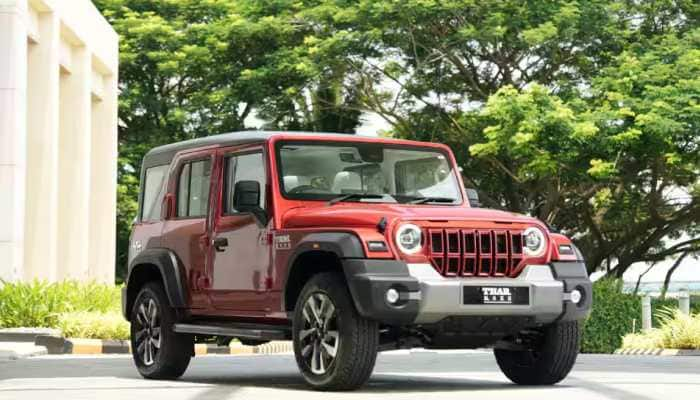Exclusive: Setting battery manufacturing plants in India will be a game changer for EV industry
We got in touch with Rajiv K Vij, CEO of Plug Mobility to understand the concept of Mobility-as-a-service and electric vehicles in general.
- Mobility as a Service concept picking pace in India
- Commercial Vehicles taking lead in EV conversion
- Govt's policies favouring EV penetration in India
Trending Photos
) Image for representation
Image for representation As electric vehicles become a household name, automakers are working hard to make EVs as convenient as ICE-powered vehicles. While improving the product helps the cause, improving the EV ecosystem is as important. The concept of Mobility-as-a-service (MaaS) was born to enhance this EV ecosystem and elevate the EV experience. We got in touch with Rajiv K Vij, CEO of Plug Mobility to understand the concept of Mobility-as-a-service and electric vehicles in general.
Tell us about Mobility-as-a-service (MaaS)
“Availability of various forms of transport services covering the entire journey of a consumer from discovery to selection, ordering, receiving the service and making payment, providing feedback etc., accessible on demand through Mobile Applications” is known as “Mobility as a Service”.
Also read: Apple to launch its own self-driving electric car soon
Why do you think commercial vehicles are easy to convert to EVs?
EV’s are more expensive in terms of initial capital cost but the energy/electricity cost for running an EV is significantly lower as compared to the diesel/petrol cost for an ICE car. “Total Cost of Ownership” of an EV is much lower as compared to an ICE car if the car is run for over 120 KM per day. Private cars in India, generally run for less than 50 KM per day while commercially registered cars run for 150-350 km per day resulting in significant savings for the fleet owners and thus making the conversion of commercial car industry to EV much easier and viable.
How do you see the current Indian EV ecosystem?
The EV ecosystem is building up fast with a large number of 2w and 3w manufacturers coming up in different parts of the country besides major OEM’s making large investments for manufacture of 2w/3w/4w including buses. Significant investments by Indian companies and global energy payers are also being made in setting charging infrastructure in all major cities and highways.
Component manufacturers are also gearing up to manufacture components for EV’s. GOI has expanded the scope of FAME II scheme for EV adoption and charging infrastructure set up and the PLI scheme to encourage local manufacturing of battery and other components are helping the growth of the ecosystem.
State Governments have also come up with various incentives as part of their EV policy to support the industry. Financing continues to be a gap in the ecosystem which the GOI is expected to address through policy measures and financial institutions. The sector is expected to see a huge growth over the next 10 years.
Are fleet owners satisfied with EV choices in India?
The situation has improved over the last 12-18 months as compared to last 3-4 years but fleet owners are seeking more choices in hatchback, sedan and van category cars with >250 KM range in a single charge and ability to service all kinds of requirements of consumers. OEM’s like Toyota, Hyundai, MG, BYD, Stelantis, Maruti Suzuki, Nissan, Renault besides Tata and Mahindra are expected to launch more car models in the next 12-18 months.
How do you see the government’s push for the EV industry?
The GOI and State Governments have implemented various policies to give the EV industry a positive push under FAME II, State wise EV policies, PLI schemes besides amendments in the MV Act. The subsidies available for setting up the charging infrastructure besides making the land/sites available for same, is also helping the sector.
Reduction in taxes on imports besides making financing available to the commercial fleet will further boost the industry. The industry is looking forward to positive policy push for EV’s in the budget.
What's next for the Indian EV industry?
The industry is still at an early stage in India as compared to China, Europe and US with EV sales in India at only 1.3% of total vehicle sales during 20-21. But the numbers are growing fast particularly in 2w and 3w sales. The 4w segment is witnessing strong demand pushing the OEM’s to make necessary investments in setting up facilities in India.
Setting up of battery manufacturing in India, will be a game changer and is expected to attract large global and Indian companies joining the race. The segment is estimated to grow at a compounded annual growth rate (CAGR) of 90 per cent in this decade to touch $150 billion by 2030. The EV industry requires large investments in EV Technology Evolution through R&D, Product Development both on the automobile platforms and battery/charging technology.
Stay informed on all the latest news, real-time breaking news updates, and follow all the important headlines in india news and world News on Zee News.
Live Tv







)
)
)
)
)
)
)
)
)
)
